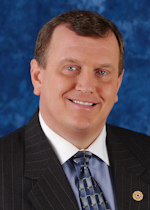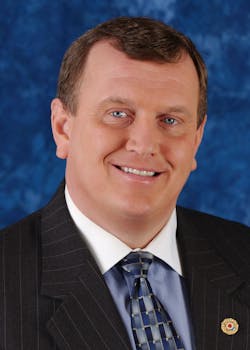The images of 9/11 are seared in the memory of all Americans. Firefighters will never forget the sacrifice of the 343 FDNY brothers and nearly 2,800 civilians murdered on that day of infamy. Nor will they forget the heroism of those who responded to Ground Zero, the Pentagon or Shanksville, PA.
The tragedy of that day lingers with a litany of WTC-related diseases plaguing first responders and those in the proximity of Ground Zero. Hundreds of thousands of people were exposed to dust, particulates and other carcinogenic containments. Fires burned at the site for several weeks with recovery operations lasting many months.
In the period following the attacks, firefighters were summoned from across the nation as part of FEMA’s Urban Search and Rescue Teams; through mutual aid compacts or as specialized teams to aid in the rescue and recovery operation. Nearly every active FDNY member and thousands of retirees pulled duty at the pile. Later, they were joined by armies of tradesman, medical professionals, social workers and support personnel to assist in clean-up operations.
Those dedicated responders witnessed horrific carnage and many still suffer from Post-Traumatic Stress Disorder today. All were all exposed to disease-causing debris.
The bottom line is the federal government has a moral responsibility to provide care and compensation to the heroes and survivors of 9/11.
Zadroga Act
Regrettably, it took Congress and the federal government over nine years to pass the James A. Zadroga WTC Health and Compensation Act. The legislation appropriated $4.2 billion dollars to establish the WTC Health Program to provide testing, treatment and monitoring for first responders and others who worked on recovery operations at the three attack sites. Another fund was established to compensate responders and victims for damages resulting from 9/11-related illnesses.
In the immediate aftermath of 9/11, the State and City of New York, the IAFF and unions representing law enforcement officers and others joined together to pass targeted legislation to provide first responders with health care coverage. A Victim’s Compensation Fund was also established and funded through 2004. These yeoman efforts succeeded. But, they were a cumbersome, annual exercise weaving through the Congressional appropriations processes. Most troubling, they were subject to whims of politicians each and every year.
It became very apparent to all stakeholders that a permanent solution needed to be found. A bi-partisan coalition of state and federal New York officials began promoting the 9/11 Health and Compensation Act named after a NYPD Detective James Zadroga, who died of respiratory ailments caused by his service on 9/11.
In spite of the efforts of Congressional proponents, advocacy organizations and those afflicted with 9/11 ailments, the proposal met strong resistance from the Bush White House and conservatives in Congress who believed the federal government bore no responsibility to pay for the legacy costs associated with 9/11. Protracted debate raged for years.
Ultimately, a crescendo of support developed only to be nearly derailed by a GOP filibuster in the Senate. However, a full-court press by advocates, Congressional supporters, the Obama administration and a compelling plea by comedian Jon Stewart to a national TV audience on his “Daily Show” won the day. In the lame duck session of the 111th Congress, Zadroga passed the House 206-60. The measure passed by a voice vote in the Senate and was signed into law by President Obama in January 2011.
Since its enactment, over 70,000 people in all 50 states participate in the WTC Health Program. Thousands more have received support from the Victim’s Compensation Fund. It has been an essential and successful program for 9/11 survivors.
Time to re-authorize
The law sunset on September 30, 2015. Bi-partisan legislation H.R 1786 and S. 928 has been introduced to re-authorize the Zadroga Act on a permanent basis. As of November 1, the House bill has 236 co-sponsors while the Senate version has 61. A clear majority of both chambers support re-authorizing the bill. Yet, conservative opponents in GOP leadership are stonewalling once again.
We need all firefighters to call your Senators and Members of Congress. If they are already co-sponsors, thank them for standing tall for us and other first responders.
If they are not supporting the bill, remind them that talk is cheap. We don’t want false praise or photo ops. We want them to support America’s Bravest by co-sponsoring and voting for the Zadroga Re-Authorization Act. And, we want them to do it now!
Visit: Renew911health.org to see if your Senators and Representatives are supporting Zadroga.

Kevin O’Connor
KEVIN O’CONNOR is the founder and principal of O’Connor CARES, Inc., an advocacy and consulting firm for organizations in the emergency response, homeland security, communications and public health space. He formerly headed Governmental Affairs and Public Policy for the IAFF. O’Connor served as past chair of the Congressional Fire Service Institute. He began his career as a firefighter/EMT in the Baltimore County Fire Department and was the 2010 recipient of the Motorola/CFSI Mason Langford Award for Lifetime Achievement in the Fire Service.






